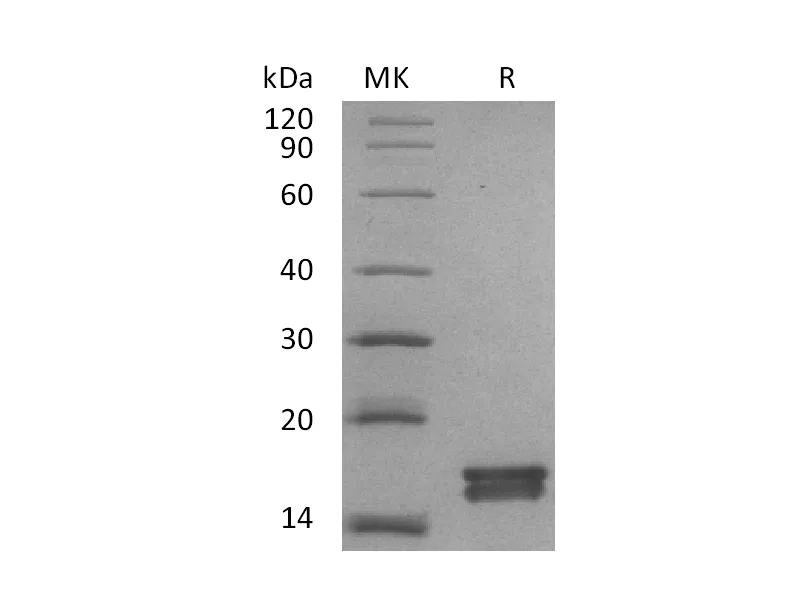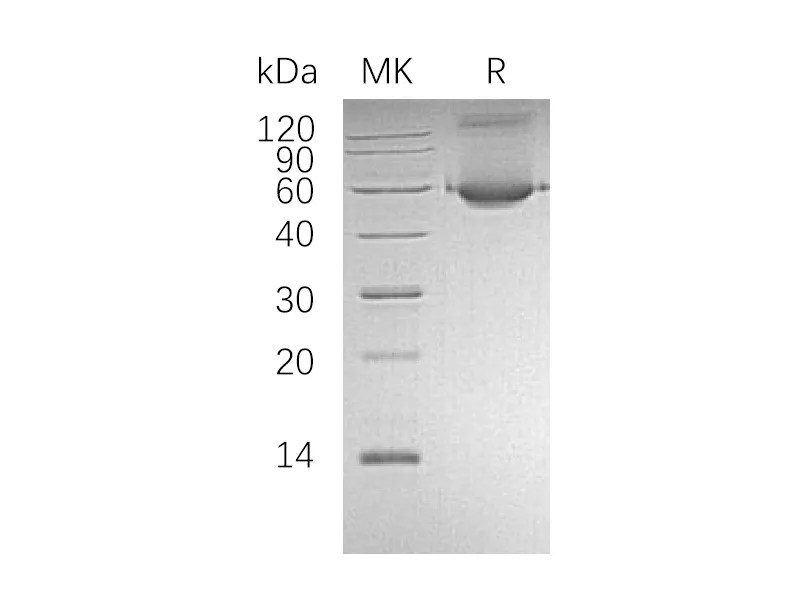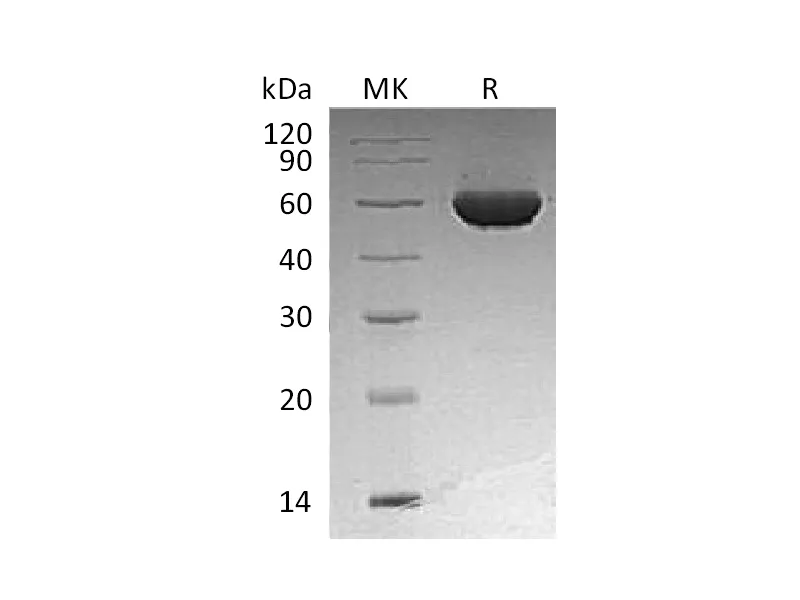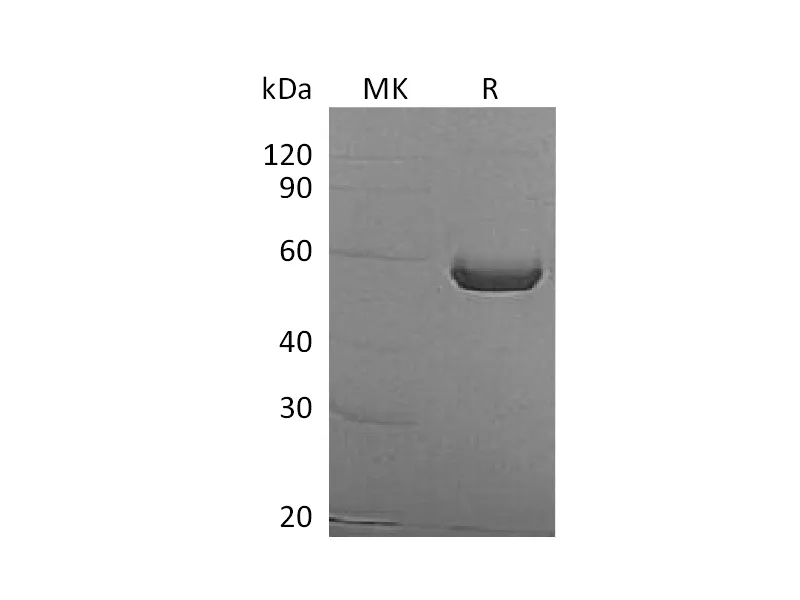Alternative Names
GP145-TrkC; TrkC; trk-C; Neurotrophic tyrosine kinase receptor type 3; TrkC tyrosine kinase
Background
Three Trk family proteins, TrkA, TrkB, and TrkC, exhibiting different ligand specificities, have been identified. TrkA binds NGF and NT-3, TrkB binds BDNF, NT-3 and NT-4/5, and TrkC only binds NT-3. The primary location of TrkC expression is in the nervous system and, specifically, in regions of the CNS. Low level TrkC expression has also been observed in a wide variety of tissues outside the nervous system. Receptor tyrosine kinase involved in nervous system and probably heart development. Upon binding of its ligand NTF3/neurotrophin-3, NTRK3 autophosphorylates and activates different signaling pathways, including the phosphatidylinositol 3-kinase/AKT and the MAPK pathways, that control cell survival and differentiation.
Note
For Research Use Only , Not for Diagnostic Use.




